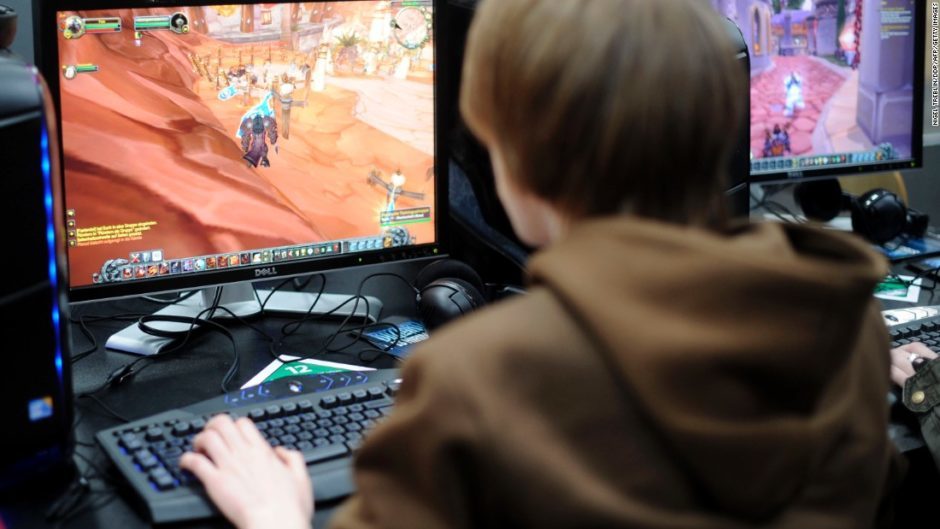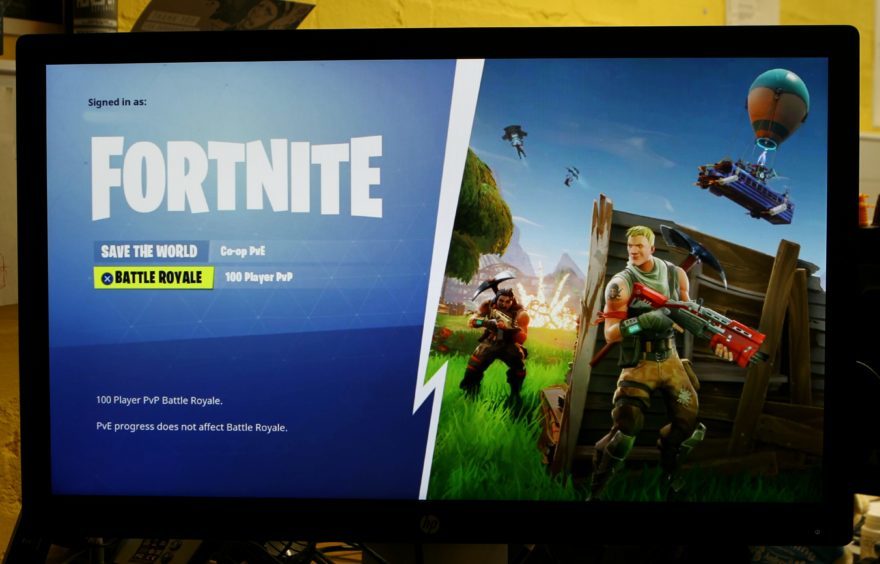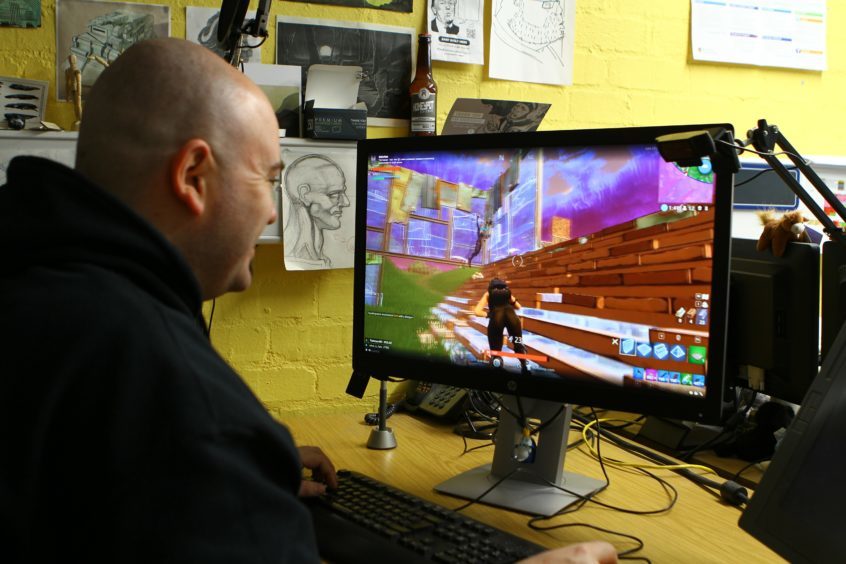As the latest online computer gaming craze Fortnite sweeps the globe, Michael Alexander speaks to an Abertay University expert in Dundee about claims video games are addictive and a danger to health.
Computer games have come a long way since Pac-man and Horace Goes Skiing in the 1980s.
From the Dundee-created Grand Theft Auto to Minecraft, and whether being accessed by games console, smartphone, PC, VR headset or online, the industry is growing exponentially with estimates from PwC suggesting that by 2021, the UK market will be worth £5.2bn, growing at a rate of 6.7% per annum.
But are video games addictive?
It was reported in January that gaming addiction is to be listed as a mental health condition for the first time by the World Health Organisation.
Its 11th International Classification of Diseases (ICD) included the condition “gaming disorder” which it defined as a pattern of persistent or recurrent gaming behaviour so severe that it takes “precedence over other life interests”.

Speak to parents of computer-gaming children and concerns will often be raised about apparent changes in mood and behaviour after lengthy periods in front of a screen.
The debate has re-ignited following the launch of the latest multiplayer online gaming craze Fortnite.
Developed by Epic Games, the survival game, described as a cross between Minecraft and Left 4 Dead, involves the sudden appearance of a worldwide storm which causes 98% of the world’s population to disappear, and zombie-like creatures rise to attack the remainder.
Up to four players must cooperate on various missions on randomly-generated maps to collect resources, build fortifications around defensive objectives that are meant to help fight the storm and protect survivors.
But according to Ryan Locke, lecturer in media design within the School of Design and Informatics at Abertay University in Dundee, it would be wrong to brand computer games as addictive.
“I certainly think the issues tend to come and go in the media,” said Northern Ireland-raised Ryan, 32, who studied computer gaming up to postgraduate level at Abertay and who finds it “humbling” that the city still has a strong reputation for gaming 20 years after its pioneering courses were first launched.
“I think the media has a natural tendency to raise negative issues and dare I say it cause moral panic.
“But ultimately the research is pretty much a grey area – nothing really points to direct connections, especially between violence in computer games, and real life.
“A lot of time we confuse addiction with something that’s more essentially about escapism.
“Rather than jumping to the word addiction, we should perhaps look at the reasons as to why human beings as playful entities we seek escapism quite naturally.
“And perhaps rather than concluding that loads of escapisms are addictions, we should maybe seek to understand the human desire to seek out forms of escapism.”
Ryan said there’s a “myriad of studies” about the positives of computer gaming ranging from medical, mental health and educational uses to social interaction and confidence building activities.
He added: “Ultimately there’s a whole sector of games where a university like ours is looking at the theory of games, the real world applications of how computer games and interactive media can help people whether that’s cyber security or training people how to deal with certain situations, training people how to meditate.”
However, he acknowledges that some games come with health warnings and, like anything, does not recommend people spending too long in front of a screen.
He said there “definitely needs to be an expansion of the conversation about how long we are spending playing games”.

“If we are handing objects to our children for hours at a time, I don’t think it’s addiction – it’s distraction,” he said.
“Perhaps we are trying to fill up their time maybe because they are bored. And of course when we try to take that item back off them, it might cause a bit of a fuss!”
Looking to the future, Ryan added that there was the potential for a “real generational divide” as the so-called ‘Generation Z’ which has only ever lived in a world with online and broadband had a “separation of understanding” with the older Generation X and Y who had experience of before technology came in.

“We are escaping seeking beings,” added Ryan.
“When we are not working, cooking, eating or socialising, we look for ways to entertain ourselves, and whether that be films, music or literature, games are just an evolution of all these things put together – with a few added bonuses.”
Addiction is also a word that doesn’t entertain Andrew Reid, a doctoral researcher of serious games at Glasgow Caledonian University.
He said: “We must be careful when using this term. Addiction is a psychological disorder that pertains to habitual and excessive activity. Video-game addiction has suggestively been defined as the excessive consumption of games that conflict with everyday living.”
Andrew cites a study conducted by the American Psychological Association.
He added: “The study concluded that, while there is scope to further research this space, evidence to define video-game addiction as a disorder is insufficient at this time.
“We can consider the reasons for, and implications of, the wide and regular consumption of video games without necessarily associating player audiences as addicts: to do otherwise would be to stigmatise the medium as an evil to our society, despite a growing portfolio of video games and research that reinforce the positive characteristics of play and interactivity.”






